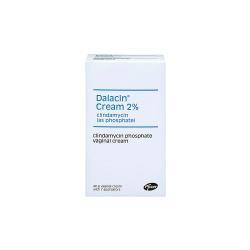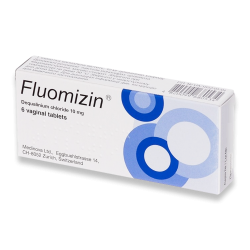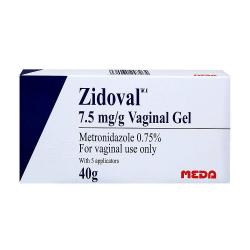- Private & confidential service
- Genuine medication
- All-inclusive service - No hidden fees
- Next day delivery
- STIs
- Bacterial Vaginosis
Bacterial Vaginosis: start your consultation
- 1. Answer the online medical questions
- This helps our doctors to decide which treatment is safe for you.
- 2. Select your treatment
- You will see a list of recommended treatments. You can select the one you prefer.
- 3. Checkout and delivery
- Once you’ve completed the checkout, our doctors will review your answers. If all is safe, you will receive your treatment tomorrow.

- Cure certain STIs
- Reduces symptoms
- Easy to take tablets

- Topical BV treatment
- Long-term management
- No unnecessary ingredients

- Antiseptic effect
- Easy to use
- Non-antibiotic treatment

- Vaginal gel
- Direct relief of BV symptoms
- Treats the infection in 5 days
Bacterial Vaginosis
Bacterial vaginosis – also known as BV or Gardnerella vaginitis – is the most common form of bacterial vaginal infection in the UK.
An outbreak of BV is treated with prescription antibiotics. These are available from HealthExpress after completing an online consultation. For further information on the condition and its treatments, please read below.
Topics
What is bacterial vaginosis?
The vagina has a delicate balance of beneficial bacteria. When the balance of this bacteria is altered, it can lead to the infection bacterial vaginosis (BV).
Certain women may not experience visible symptoms. However, in most cases, there are uncomfortable symptoms that require treatment to go away.*
If you do have symptoms, it is important to report them to a healthcare professional and seek treatment. Complications of untreated BV are serious, especially if you are pregnant (e.g. premature birth, miscarriage or chorioamnionitis).
*Regardless of the severity of symptoms, you should seek treatment if you have BV.
Is bacterial vaginosis a sexually transmitted infection (STI)?
BV is not classified as an STI as you do not have to be sexually active to contract the infection. That being said, it is more likely to occur in women who are sexually active. Those who have multiple sexual partners are also at higher risk as there is a greater chance of a bacterial imbalance.
If you are sexually active, the only way to completely stop the spread of STIs is to use a condom and take regular tests.
What causes bacterial vaginosis?
As mentioned, bacterial vaginosis is caused by an imbalance in the bacteria that naturally live in your vagina.
The vagina is always slightly acidic to keep it clean and healthy, this is also the ideal environment for the probiotic bacteria - lactobacilli. Lactobacillus bacteria also live in your urinary tract and digestive system.
When there is a loss of lactobacilli, other more harmful bacteria will flourish, leading to infection and the unpleasant symptoms of BV.
What triggers bacterial vaginosis?

Sexual activity
Those who have regular sex are more susceptible to BV. The risk increases with a large number of sex partners.

Intrauterine device (IUD)
As a foreign object, both the copper and hormonal IUDs can trigger BV. The individual parts of the device may affect the balance of bacteria in the vagina.

Smoking
A lesser-known risk factor is smoking. Studies have shown that the chemicals in cigarettes alter the bacteria living in the vagina, increasing the chance of BV occurring.

Over-cleaning
You should not wash (douche) inside your vagina using household products as douching can cause an infection. The vagina naturally cleans itself. If you wish to clean the area around the vulva, use water and (a small amount) of unperfumed soap.

Foreign objects
Along with the IUD, tampons and other foreign objects can affect the natural bacteria in the vagina.

Personal hygiene
Not wiping after the toilet, wiping incorrectly and not changing your underwear often can all trigger BV.
What are the symptoms of bacterial vaginosis?
Around half of women with BV don't show any symptoms at all. When you don’t present any symptoms, this is referred to as asymptomatic. It is surprisingly common with many sexually transmitted diseases (STDs) and vaginal infections. The female genitals being mostly internal means inflammation is less apparent.
The main sign of BV is abnormal vaginal discharge. It is common to experience discharge from time to time as the vagina cleans itself, however, anything out of the ordinary should be reported to a GP or gynecologist.
Discharge from bacterial vaginosis is usually:
- white or grey
- thin and watery
- strong-smelling (a fishy smell)
These symptoms may coincide with others, such as an itching or burning sensation when urinating and irregular bleeding.
What are the complications of untreated bacterial vaginosis?
If not treated promptly, BV can lead to further complications. These can be more serious and may have life-long and distressing effects on both your health and the health of any unborn child.
If you do not treat the condition, you will be at an increased risk of contracting STIs such as HIV, genital herpes, gonorrhea and chlamydia. It is then possible for these to be passed on to a child during pregnancy and labour.
Bacterial vaginosis can also cause pelvic inflammatory disease (PID). PID is where the infection spreads from the vagina to your upper genital tract, including your ovaries, uterus and fallopian tubes. This condition has the potential to make you infertile and can cause pregnancy-related conditions, such as ectopic pregnancies.
The best way to prevent BV from spreading to other organs is to treat it quickly. If it does spread, you can expect other symptoms such as pelvic and abdomen pain and heavy bleeding.
How do I treat bacterial vaginosis?
As BV is a bacterial infection, the most effective form of treatment is antibiotics. After digestion, antibiotics pass into your bloodstream, where they travel to sites of infection. Depending on the type of antibiotic, bacteria will either be killed outright or their growth suspended. Your immune system can then more easily clear the infection.
You should always complete a full course of antibiotics, even if symptoms improve. Not completing a course can cause the infection to return as well as antibiotic resistance, where treatment will be less effective in the future.
Metronidazole is the most popular antibiotic treatment for bacterial vaginosis. It is available in different forms, most commonly as a tablet which is taken twice a day over seven days. You can also buy Metronidazole as a gel from HealthExpress. Normally the gel is prescribed to breastfeeding or pregnant women - this is so that the active ingredients cannot pass to the child. If you are unsure which version is best, consult with your doctor.
One alternative to Metronidazole is Dalacin Cream. Dalacin is also an antibiotic, containing the active ingredient clindamycin phosphate. It works in the same way, preventing bacteria from multiplying. Dalacin is applied directly into the vagina with an applicator. It is easy to use and allows you to treat infection at the source.
Fluomizin is a non-antibiotic alternative. Instead, it is an antiseptic. These work in a similar way to antibiotics, stopping bacteria cells from growing. However, they are only effective for the area applied to. Fluomizin comes as vaginal tablets - you should insert one into your vagina daily. The course will normally last six days.
Can I buy bacterial vaginosis treatment online?
You can order bacterial vaginosis treatment from HealthExpress. Once you have selected the medication you need, you will be asked to complete an online consultation. This process allows one of our doctors to assess your health and ensure the product is safe for you.
We recommend that you order a treatment only after you have been diagnosed by your doctor or in cases where you require a repeat prescription.
If approved, you can take advantage of our fast delivery service - your BV treatment will be delivered the next day to anywhere in mainland UK.
The treatments HealthExpress currently offers for BV include:
medical form
medication
prescription
from pharmacy

